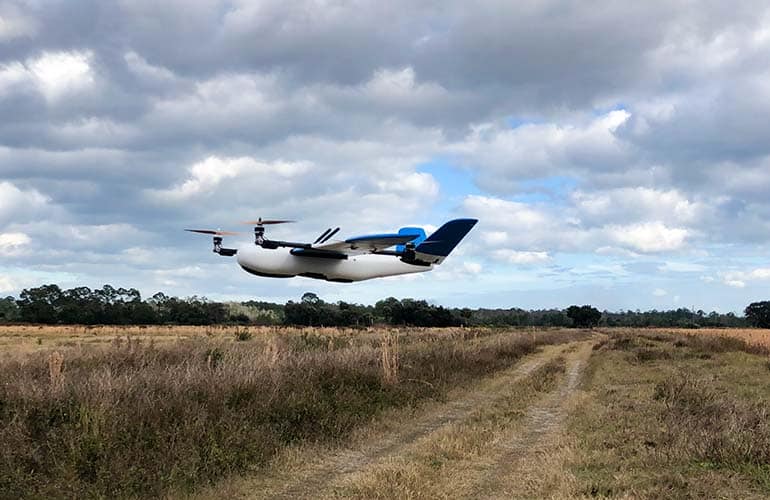



Skyward has partnered with the Federal Aviation Administration (FAA) to test cellular-connected drones that could unlock complex UAV (unmanned aerial vehicle) operations such as beyond visual line of sight (BVLOS), universal traffic management (UTM), and one-to-many operations.
The partnership will enable Skyward and the FAA to mutually research the capabilities of cellular communication networks for command and control (C2) of unmanned aircraft within the National Airspace System. Partially focused on safety-critical C2 data, the three-year collaboration also allows the two groups to propose standards for operations, including BVLOS and over commercial wireless spectrum. Skyward and parent company Verizon will also be using the data and information collected to inform discussions on C2 and BVLOS operations in the FAA’s BVLOS Advisory and Rulemaking Committee.
Currently, most commercial drones use unlicensed spectrum, which is restricted in range and subject to interference, limiting its use for complex operations. Verizon’s 4G LTE nationwide coverage, provided over spectrum protected from interference, presents a significant opportunity for drone operations. The collaboration will inform regulations regarding spectrum used in the C2 link between the drone operator and drone, and will also facilitate information sharing between the FAA and Skyward, leveraging Verizon’s wireless network expertise, as the parties continue to explore how wireless networks can support drone operations.
The agreement between Skyward and the FAA aims to address complex UAS operations through joint data collection and analysis, and follows Skyward’s recent emergency waiver to inspect critical communications infrastructure near the Big Hollow wildfire in Washington. The fully remote BVLOS operation, with no pilot or visual observer on site, demonstrated a low-risk operation as well as a need for analyzing and sharing fully remote data with standard bodies and the FAA.
Matt Fanelli, Director of Strategy and Operations at Skyward, commented: “Cellular-connected drones play a critical role in enabling tomorrow’s safe, reliable, and secure drone operations. We are thrilled to be laying this foundation with the FAA and are confident that our efforts will help inform technical standards from which industry regulations authorizing low-risk BVLOS and one-to-many operations will flow.”





Related Posts
New Drone Fires Thales Missile in Unmanned Air Combat Milestone
UAS Startup Accelerator Awards 3M in Funding
US Navy Orders Unmanned Tactical Resupply Aircraft